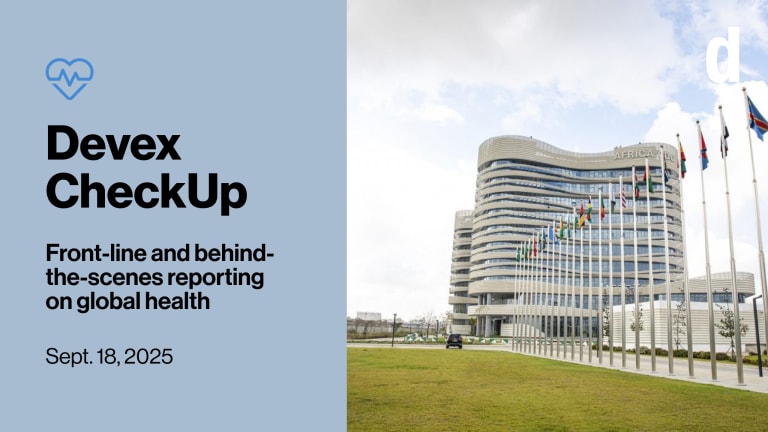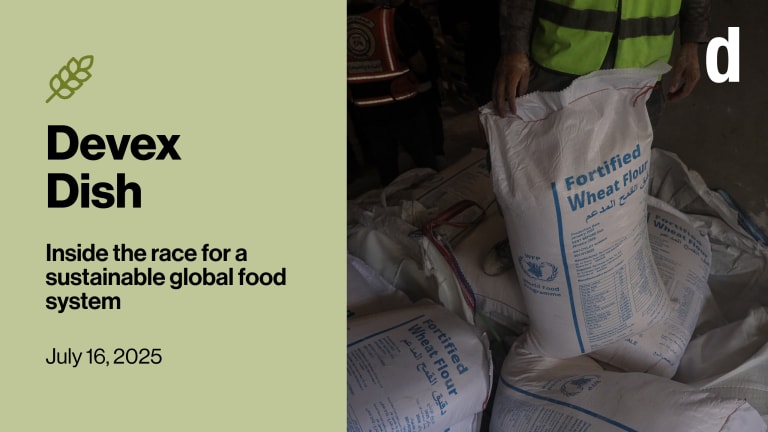
WASHINGTON — World Food Programme Executive Director David Beasley sounded the alarm about the growing crisis in the Kasai region of the Democratic Republic of the Congo on Monday, describing a spiraling conflict and interventions required to prevent greater tragedy.
Beasley, who visited the Kasai region over the weekend as part of a trip in the DRC, shared the stories he heard of violence, beheadings, and rape, in a telephone call with reporters on Monday. The situation rivals some of the worst conflicts in the world today but hasn’t made many headlines, he said.
The need is dramatic. In the Kasai region alone, 3.2 million people are severely food insecure. Across the DRC, about 7.7 million are severely food insecure, with 2 million children acutely malnourished. About 600,000 children are on the brink of starvation and may die if the WFP doesn’t receive the money it needs to respond to the conflict, according to the agency.
Only about 1 percent of the $135 million appeal to fund the next eight months of humanitarian response in the Kasai region has been met. A growing number of crises throughout the world — including four countries facing near-famine conditions and the Rohingya refugee crisis — are making it increasingly difficult to raise money to address the need in places such as Kasai.
In Kasai, however, Beasley said that a swift intervention now to stop the conflict and address the needs could prevent much greater, more expensive, and longer term needs.
A turnaround could also help displaced people move back home and start farming again, producing their own food and reducing food security challenges, Beasley said. The need is urgent because the rainy season is a few weeks away, and the next planting season begins in February.
Beasley was in the DRC to better understand the situation on the ground and to push the government and President Joseph Kabila to take action and make changes.
Beasley met with President Kabila, Prime Minister Bruno Tshibala, and the cabinet for a series of “frank conversations,” he told reporters. He made it clear, he said, that the government needed to build the confidence and trust of donors, address issues to resolve the conflict, and cooperate with the WFP, United Nations, and other aid organizations to provide them with access and ensure their safety.
“With the president, he gave me his assurances he would do everything possible with any and all needs we brought to his attention,” Beasley said.
In meetings with the prime minister and cabinet, Beasley also addressed a number of specific ways the government can support humanitarian efforts, including increasing the number of visas available for humanitarian community and making them easier to obtain, and reducing or eliminating administrative fees levied on the U.N. for operating in the country. The U.N. has paid about $9 million in fees to the DRC government, according to Beasley — money that should instead be spent to feed thousands of people. In those meetings he was also given assurances things would change, he said.
“I explained to leadership here that they are competing in a difficult environment,” and that if donors don’t see cooperation from the government, they will look to invest their money where they will get the best return, Beasley said. Donors feel that they have “spent billions in the DRC with little to show for it,” he said.
In meetings with foreign ambassadors in the DRC and with donors more broadly, Beasley said he urged greater engagement.
“Please don’t penalize innocent victims of conflict because of a lack of trust in the parties engaged,” Beasley said, adding that the system must be changed so that food is used to help unify the area and not as a weapon of war and conflict.
WFP will continue to operate in the region, currently funded in part by a $25 million internal loan the agency advanced to itself to scale up in Kasai. The agency is working to get access and ensure the safety and stability of staff and supplies; getting goods into the region often means trucking them over a 1,200 mile road in difficult conditions. The agency now feeds about 100,000 with plans to ramp up to 400,000 by the end of the year, and more as it opens up access and gets more funds, Beasley said.
Read more international development news online, and subscribe to The Development Newswire to receive the latest from the world’s leading donors and decision-makers — emailed to you free every business day.








